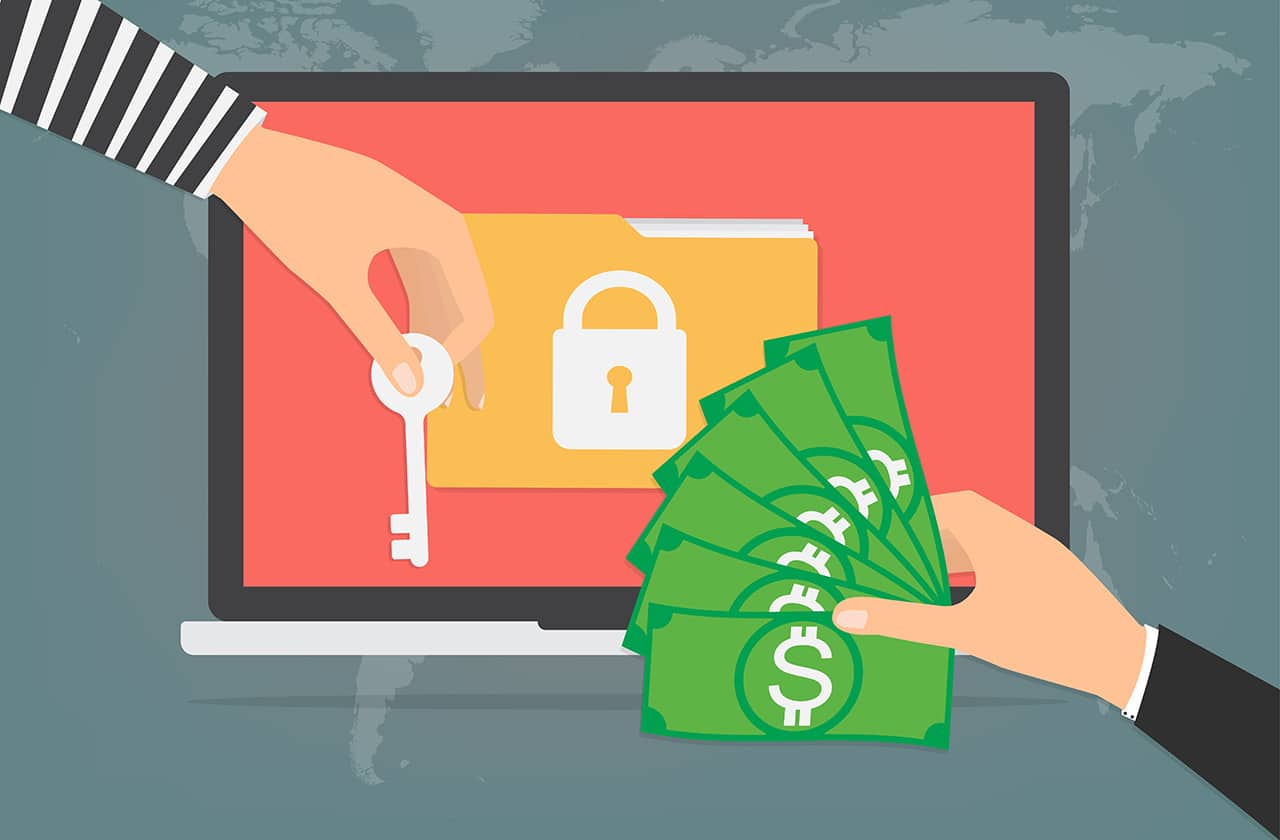For many companies, data is not just an advantage, it’s the soul of its business. From customer data to IT data to financial data and more, this information is not only valuable to the companies that own it, but also to cybercriminals. How? By deploying software that restricts your access and locks you out of your data systems, these hackers can cripple your entire business operation. For you to regain access, they’ll demand you pay a ransomware settlement.
What Is Ransomware?
Ransomware is perhaps the biggest and most profitable of all the cyber crimes perpetrated today. It is a type of malicious software that aims to expose or block access to a company’s computer system or data until the victim pays a ransom to get the system or data back. Consider ransomware to be a form of kidnapping, but instead of people, ransomware kidnaps data.

Ransomware attacks are usually targeted at corporations that have access to people’s Personally Identifiable Information (PII). This is because these corporations have a duty to protect such sensitive information, and knowing this, cybercriminals pounce by holding this data hostage and demanding settlements in return. Some of the most high-profile ransomware cases in recent times include CNA Financial, a top insurance firm in the U.S., paying a settlement fee of $40 million. Another involved JBS, the biggest meat processor in the world, paying a settlement fee of $11 million, among others.
What Are Ransomware Settlements?
A ransomware settlement, as you may have guessed, is money paid to cybercriminals in exchange for stolen data or encrypted systems. They can cost tens of millions of dollars, as the examples above demonstrate. This is because getting data back is critical for any company that wants to survive a post-ransomware attack. However, government and its agencies, like the FBI, advise against paying ransomware settlements to avoid encouraging the ransomware cycle.
Why Should You Avoid Paying Ransomware Settlements?
When not-so-big firms encounter a malware attack, they tend to want to keep it under wraps, due to the fear of public backlash, or in a bid to prevent their customers from panicking or jumping ship. This means they tend to pay the ransom as quickly as they can. However, there are a few reasons not to pay ransomware settlements if you ever find yourself a victim of an attack:
1. To Break the Cycle
As long as people continue to pay the ransom, more criminals will engage in ransomware activities. The lower the chances of getting paid, the fewer people that’ll get involved in ransomware attacks.
2. You’re Never Truly Free
Even if you pay the ransom, there’s no guarantee that a ransomware attack won’t happen again without the right people cleaning your systems. If they gained access once, you never know what they left behind to make it easy for them to gain access again. All you can do is clean your systems as best as possible.

3. There Is No Assurance You Get Your Data Back
Just like any theft case in real life, there is absolutely no guarantee that you’ll get your stolen property back. It’s even worse in the case of ransomware because you don’t even know who the perpetrator is.
How Can You Avoid Paying Settlements Should an Attack Occur?
Businesses are beginning to look for ways to avoid paying these settlements, which has led to the creation of cyber insurance. While it is still a developing industry, cyber insurance has become a necessity for small and medium-sized businesses that are unsure about the security of their systems or cannot afford to pay for settlements if an attack occurs. Cyber insurance is a great idea because it covers attacks in such a way that should your systems fall victim, the insurance company would be in charge of data recovery and system restoration.
If you don’t want to pay those hefty settlements, consider getting cyber insurance. Every business that is online is a potential target for cyberattacks, so it’s better to take protective measures before it happens.